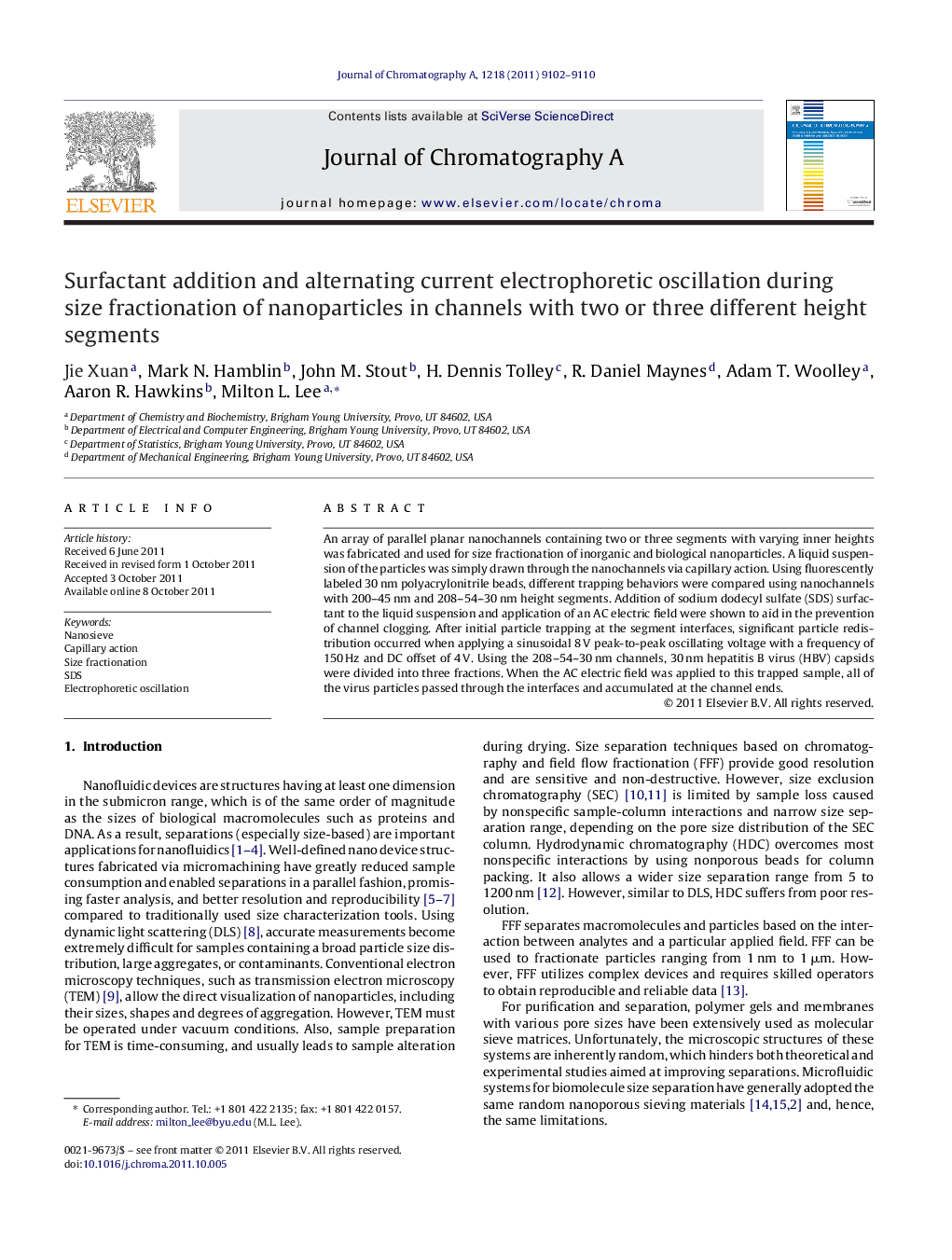| کد مقاله | کد نشریه | سال انتشار | مقاله انگلیسی | نسخه تمام متن |
|---|---|---|---|---|
| 1203183 | 965101 | 2011 | 9 صفحه PDF | دانلود رایگان |

An array of parallel planar nanochannels containing two or three segments with varying inner heights was fabricated and used for size fractionation of inorganic and biological nanoparticles. A liquid suspension of the particles was simply drawn through the nanochannels via capillary action. Using fluorescently labeled 30 nm polyacrylonitrile beads, different trapping behaviors were compared using nanochannels with 200–45 nm and 208–54–30 nm height segments. Addition of sodium dodecyl sulfate (SDS) surfactant to the liquid suspension and application of an AC electric field were shown to aid in the prevention of channel clogging. After initial particle trapping at the segment interfaces, significant particle redistribution occurred when applying a sinusoidal 8 V peak-to-peak oscillating voltage with a frequency of 150 Hz and DC offset of 4 V. Using the 208–54–30 nm channels, 30 nm hepatitis B virus (HBV) capsids were divided into three fractions. When the AC electric field was applied to this trapped sample, all of the virus particles passed through the interfaces and accumulated at the channel ends.
► Parallel nanochannel arrays with different height segments were fabricated.
► Nanoparticles were separated at interfaces of different height segments.
► Movement through channels was accomplished primarily by capillary action.
► Polyacrylamide beads and virus capsids of 30 nm diameter were studied.
► Electrophoretic oscillation and addition of surfactant minimized channel clogging.
Journal: Journal of Chromatography A - Volume 1218, Issue 50, 16 December 2011, Pages 9102–9110